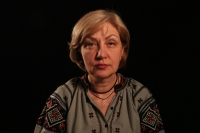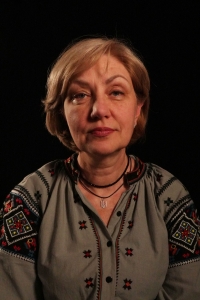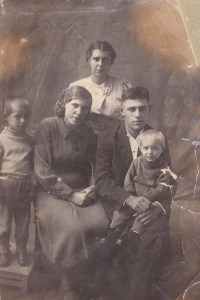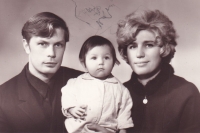My roots are here, and this is where I feel better

Download image
Ehlla Nesterenko is an engineer, municipal worker, and volunteer. She was born in 1970 in Kramatorsk. Initially, she studied industrial and civil engineering in nearby Druzhkivka. After graduating from technical school, she continued her education at the Moscow Institute of Civil Engineering. However, due to the collapse of the Soviet Union, traveling to Moscow for studies became impossible, and she transferred to a similar institute in Makiivka, closer to home. She started working at the age of 18 while still studying. In the early 1990s, she got a job at the Kuibyshev Kramatorsk Metallurgical Plant, which had a housing program for employees, allowing her to secure an apartment. During the economic crisis and salary delays at the plant, she lived in constant debt and sold goods at the market. During this transitional period, she raised her son on her own. During the 2004 presidential elections, she served as the secretary of a local election commission and witnessed falsifications in favor of Viktor Yanukovych. While initially supporting him during the Orange Revolution, she later changed her political views under the influence of her younger sister. In 2013–2014, she was an active supporter of the Euromaidan movement. During the spring and summer of 2014, she survived the occupation of Kramatorsk by the “DPR” militants and engaged in volunteer activities to support Ukrainian soldiers. She has remained in her hometown even after Russia’s full-scale invasion of Ukraine. She dreams of becoming a grandmother.






